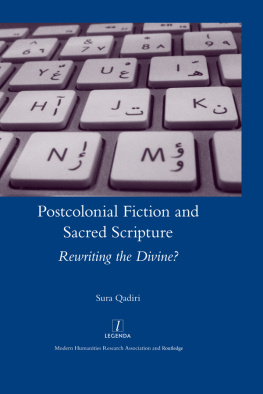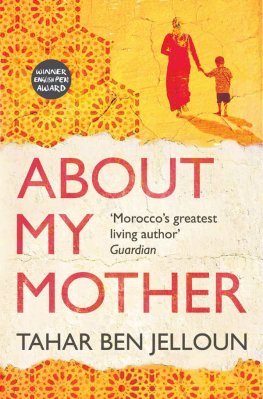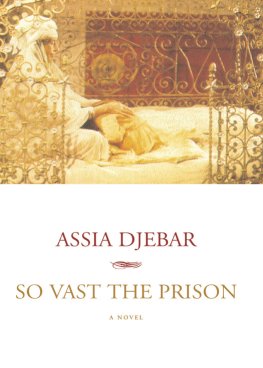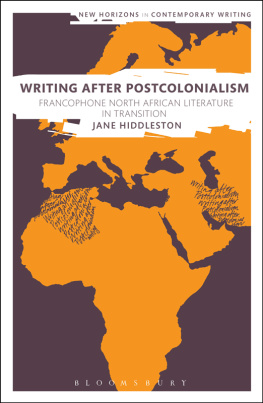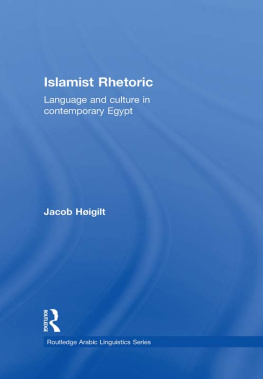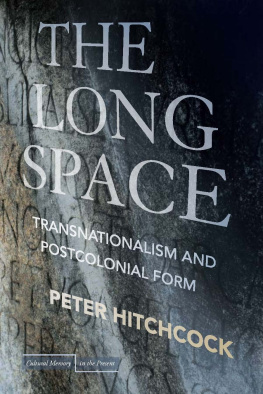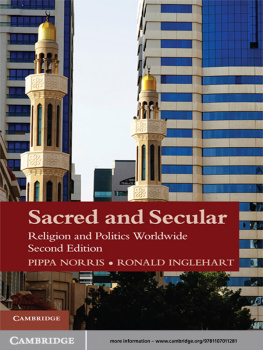First published 2014
Published by the
Modern Humanities Research Association and Routledge
2 Park Square, Milton Park, Abingdon, Oxon OX14 4RN
711 Third Avenue, New York, NY 10017, USA
LEGENDA is an imprint of the Modern Humanities Research Association and Routledge
Routledge is an imprint of the Taylor & Francis Group, an informa business
Modern Humanities Research Association and Taylor & Francis 2014
ISBN 978-1-907975-81-3 (hbk)
All rights reserved. No part of this publication may be reproduced, stored in a retrieval system, or transmitted in any form or by any means, electronic, mechanical, including photocopying, recordings, fax or otherwise, without the prior written permission of the copyright owner and the publisher.
Product or corporate names may be trademarks or registered trademarks, and are used only for identification and explanation without intent to infringe.

LEGENDA , founded in 1995 by the European Humanities Research Centre of the University of Oxford, is now a joint imprint of the Modern Humanities Research Association and Routledge. Titles range from medieval texts to contemporary cinema and form a widely comparative view of the modern humanities, including works on Arabic, Catalan, English, French, German, Greek, Italian, Portuguese, Russian, Spanish, and Yiddish literature. An Editorial Board of distinguished academic specialists works in collaboration with leading scholarly bodies such as the Society for French Studies, the British Comparative Literature Association and the Association of Hispanists of Great Britain & Ireland.

The Modern Humanities Research Association (mhra) encourages and promotes advanced study and research in the field of the modern humanities, especially modern European languages and literature, including English, and also cinema. It also aims to break down the barriers between scholars working in different disciplines and to maintain the unity of humanistic scholarship in the face of increasing specialization. The Association fulfils this purpose primarily through the publication of journals, bibliographies, monographs and other aids to research.

Routledge is a global publisher of academic books, journals and online resources in the humanities and social sciences. Founded in 1836, it has published many of the greatest thinkers and scholars of the last hundred years, including adorno, einstein, Russell, Popper, Wittgenstein, Jung, Bohm, Hayek, Mcluhan, Marcuse and Sartre. Today Routledge is one of the worlds leading academic publishers in the Humanities and Social Sciences. It publishes thousands of books and journals each year, serving scholars, instructors, and professional communities worldwide.
www.routledge.com
Contents
Guide
I would like to give special thanks to Ian James for supervising the project on which this book is based, and for his continuing support. Thanks also to my examiners Emma Wilson and Patrick Ffrench for their constructive comments and suggestions. I am very grateful to Nicholas Harrison and Jane Hiddleston for reading and commenting on parts of the manuscript, and to Martin Crowley, who commented on , and in the Introduction and Conclusion. I would like to express my appreciation to Graham Nelson and Nigel Hope at Legenda for all their support and advice. I am grateful to the translators of many of the works cited. Where no English edition is credited, translations are my own. Finally, thanks Omar for all the support, moral and material.
S.Q. , London, February 2014
P OSTCOLONIAL F ICTION AND S ACRED S CRIPTURE R EWRITING THE D IVINE?
In 1994, French-Tunisian psychoanalyst Fethi Benslama published his essay Une Fiction troublante , which sought to examine the Muslim backlash against Salman Rushdie following his publication of The Satanic Verses . A section of Rushdies novel dwells on the possibility that verses inspired by Satan may have accidentally crept in among the divinely inspired verses of the Quran. This is based on a claim that such an event did take place at the time of Quranic revelation, with the Prophet transmitting verses that were then retracted on account of their inauthenticity. The narrative is one that has been debated and discredited within the mainstream canon of Islamic history. Rushdie lays claim to his right here to be inspired by it as a novelist and to appropriate it as part of the realm of the imaginary, to which it has been cast out by the official annals of the history of the sacred. Benslama makes the case that it is not merely the inflammatory subject matter of the novel that caused the greatest offence amongst Muslims, but that deep down it was the very literary form in which the story was depicted that was most unsettling. He writes:
Le texte ne propose en apparence aucune construction en restauration de lorigine commune, ne dit aucun commencement que le sien, aucune fin que la sienne et fait le pari que la parole est possible sans commencement et sans fin outre ceux quelle construit elle-mme. Cest le scandale dune parole qui devient lennemi dclar du commun.
[The text does not seemingly offer any reference to a common origin, does not announce any beginning besides its own, nor any end beyond itself, and dares to suggest that discourse is possible without a beginning or an end besides those it creates itself. It is the scandal of an utterance that becomes the declared enemy of the collective.]
The very nature of the text as fictional, self-referential, detached from, and unaccountable to the official discourses that traditionally deal with the religious themes to which Rushdie gestures poses a threat to the authenticity attributed to sacred scripture. Benslama concludes that the most troubling aspect of narrative fiction is its structural resemblance to narratives within sacred books like the Quran. This threatens to reduce scriptural narratives to a set of fictional narratives among many others, thus undermining their claims to authority and veracity. Rushdie himself defends his book by highlighting its fictional status. He asserts that it is not only a novel, thus suggesting that fiction creates a textual opportunity for reassessing issues borrowed from other forms of narrative. Rushdie stops short in his essay of elaborating what the consequences of such reimagining should be, particularly for a community with a more traditional approach to sacred narrative.
This book explores the relationship between literary fiction and sacred scripture as it is presented (both consciously and more implicitly) in contemporary works of fiction and thought, chiefly but not exclusively by writers from North Africa and the Middle East. It presents a range of positions that vary from a very latent (and sometimes inadvertent) engagement with the divine to a very explicit upholding of a sense of dichotomy between literary text and sacred scripture. In the latter case, writers propose literature as an antidote to religious practices thought to be socially and politically problematical, and to posit literature as a destabilizing force when it comes to established religious narrative. In other cases, there is an engagement with an idea of the divine that is not informed by the monotheistic qualifications of God. These express a desire to explore personalized encounters and relationships with some form of the divine, particularly in areas where a more canonical idea of God forms part of collective consciousness and public identity. Whether literature is being used to open up the narratives that constitute sacred scripture, or whether it attempts to explore notions of the divine that lay aside scriptural teachings, it becomes a textual means of supplementing or exploring further the ideas and motifs put forward by sacred text. And in the most extreme cases, literature is put forward as an anti-doctrinal manifesto that can change the religious beliefs and habits of a community. Such a position is built on the idea that the subversive potential of literature stems from an inherently anti-doctrinal quality. This is an assumption that I will question, suggesting that it is based on very specific use being made of very specific notions of the literary.

